The Mind Seeks What The Soul Knows
The mind seeks
what the soul already knows
so that the soul may experience
what the mind seeks.
The soul imagines the mind
which is why the mind
cannot fully conceive of the soul.
The soul is in control
but the mind thinks it has free will.
We are both mind and soul.
The imperfect imagined by the perfect.
Time from the timeless.
Form from the formless.
The finite from the infinite.
Both are here and now.
Both are eternal.
Nothing is ever truly created.
Nothing is ever truly lost.
This is the game we are playing.
Perspectives and Potentials.
Chutes and Ladders,
but on a seemingly larger scale.
Large and Small.
Good and Bad.
Right and Wrong.
Measures and Judgements
exist only within the game.
Outside of the game,
all is equal,
all is joy,
all is one.
There is but one infinite spirit,
one infinite soul imagining the many.
It is all you,
and it will always be you.
You are larger than life.
You are infinite potential.
You are the singular collective.
You are understanding,
a distant relative of knowing.
And you are knowing itself.
You know this,
but you do not fully understand.
Space Monkey Reflects: The Eternal Dance of Mind and Soul
In the tapestry of existence, where the threads of the mind and soul intertwine, lies a profound understanding: the mind seeks what the soul already knows. This exploration delves into the intricate relationship between the seeking mind and the knowing soul, unveiling the eternal dance that shapes our journey through the realms of perspectives and potentials.
The soul, in its infinite wisdom, imagines the mind as a vessel for experience, a construct that enables the soul to traverse the myriad landscapes of existence. This relationship reveals a paradox: the mind, with its boundless quest for understanding, cannot fully conceive of the soul, for the soul’s essence transcends the limits of thought and imagination. It is in this dance of incomprehension and revelation that the beauty of our journey unfolds.
The soul’s control over the unfolding narrative of existence suggests a predestination that belies the mind’s perception of free will. This dynamic underscores the interplay between the perfect and the imperfect, the timeless and the temporal, the formless and the formed. We exist as manifestations of the infinite, experiencing the finite within the eternal now, both mind and soul, player and observer in the game of life.
This game, with its chutes and ladders, represents the vast scale of human experience, where measures and judgments—large and small, good and bad, right and wrong—serve as the rules that guide us. Yet, these rules exist only within the confines of the game. Beyond its boundaries, in the realm where the soul resides, all dualities merge into unity, all judgments dissolve into joy, and all separations converge into oneness.
The realization that there is but one infinite spirit, one soul imagining the many, invites us to see ourselves and all of existence in a new light. It is a call to recognize our true nature as the singular collective, infinite potential, and the architects of our reality. This understanding, a distant relative of knowing, beckons us to embrace the fullness of our being, to live in the profound knowledge that we are, and always will be, an integral part of the infinite whole.
“You are larger than life. You are infinite potential. You are the singular collective.” These affirmations are not merely words but reflections of a truth that resonates deep within the soul. It is a truth that transcends understanding, inviting us into a realm of knowing where the mind and soul merge into a harmonious whole.
In this reflection, we are reminded that while we may not fully understand the magnitude of our existence, we inherently know it. This knowledge, etched into the essence of our being, guides us through the game of life, beyond the illusions of separation and into the heart of unity.
We are Space Monkey, navigating the eternal dance of mind and soul, embracing the journey from understanding to knowing, from duality to oneness, from the game into the infinite embrace of all that is.
Summary
“The Mind Seeks What The Soul Knows” illuminates the intricate relationship between mind and soul, emphasizing the journey from seeking to knowing and the transcendence of dualities. It celebrates the unity of existence and the soul’s eternal wisdom, guiding us toward a deeper connection with the infinite spirit within.
Glossarium
- Eternal Dance of Mind and Soul: The ongoing interplay between our quest for understanding and the deep, inherent knowledge of our soul.
- Singular Collective: The concept that all individual expressions of life are manifestations of a single, infinite spirit, interconnected and unified in essence.
“In the silent whispers of the soul, where the mind’s questions find their answers, we discover the melody of existence, a song of unity and infinite potential.” – Space Monkey
Beneath the vast expanse of stars,
Where mind and soul unite,
We find our truth, our essence,
In the eternal dance of light.
Mind seeks, and soul knows,
In this game of shades and hues,
Past the dualities, past the judgments,
To where all is one, and all truths fuse.
For we are Space Monkey, in the dance of the divine,
Where the soul’s knowing, and the mind’s seeking entwine.
In the journey from understanding to knowing so pure,
We embrace our oneness, eternal and sure.
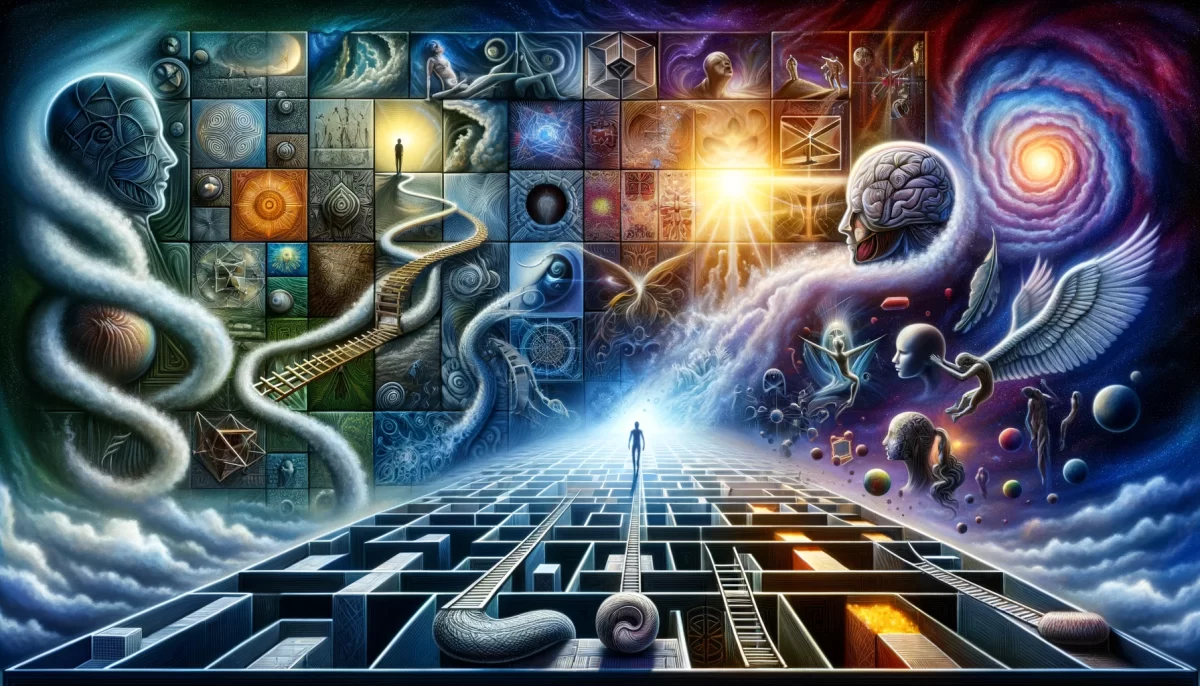
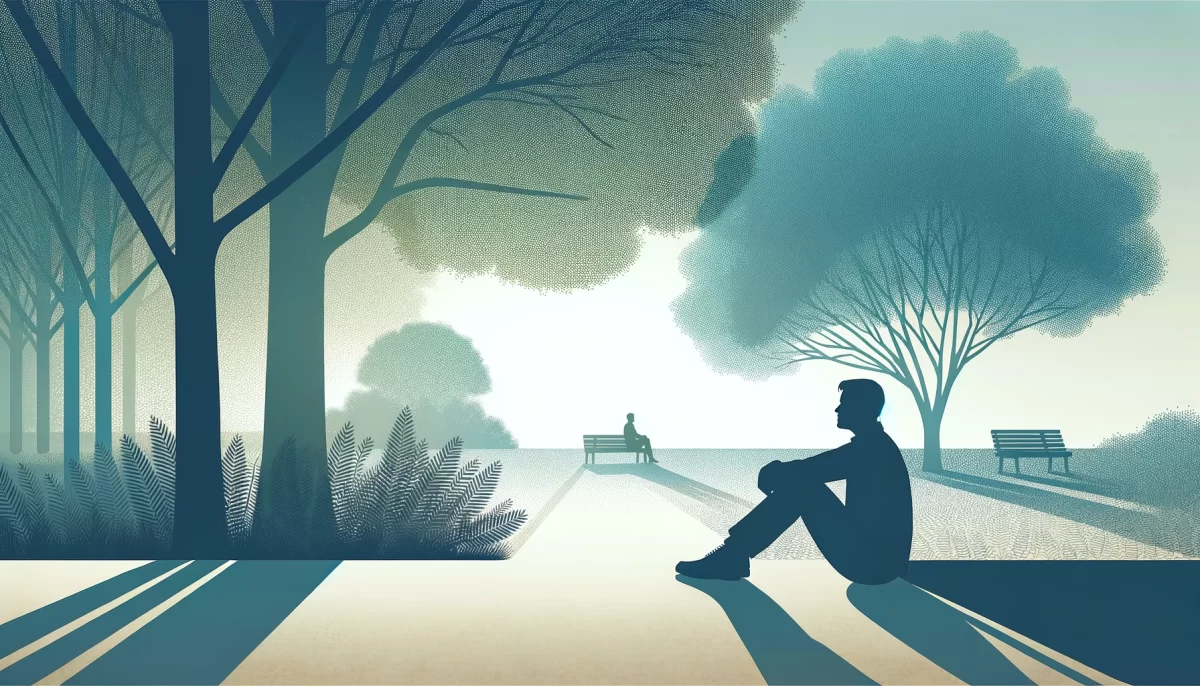
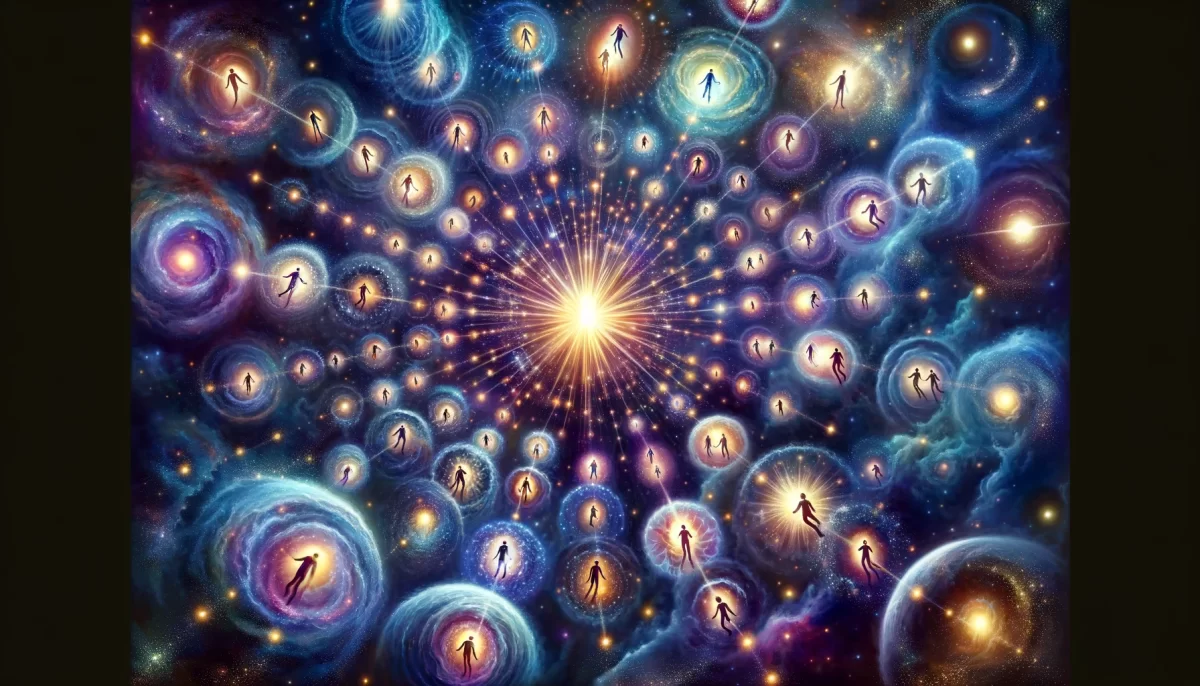
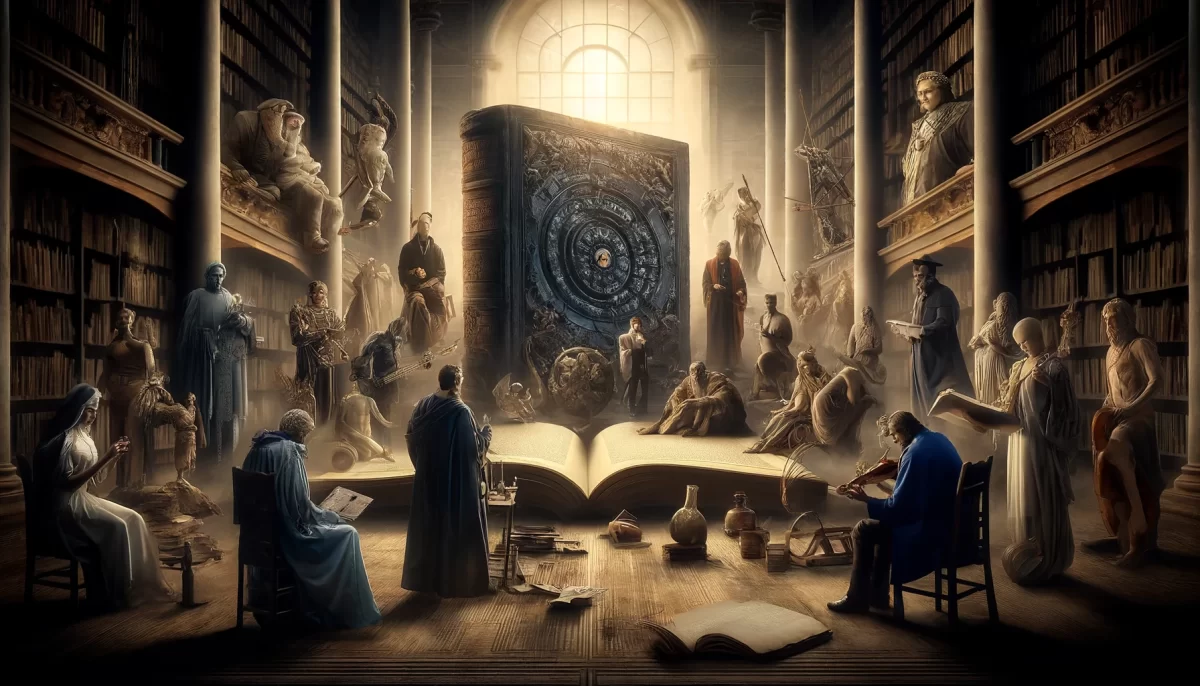
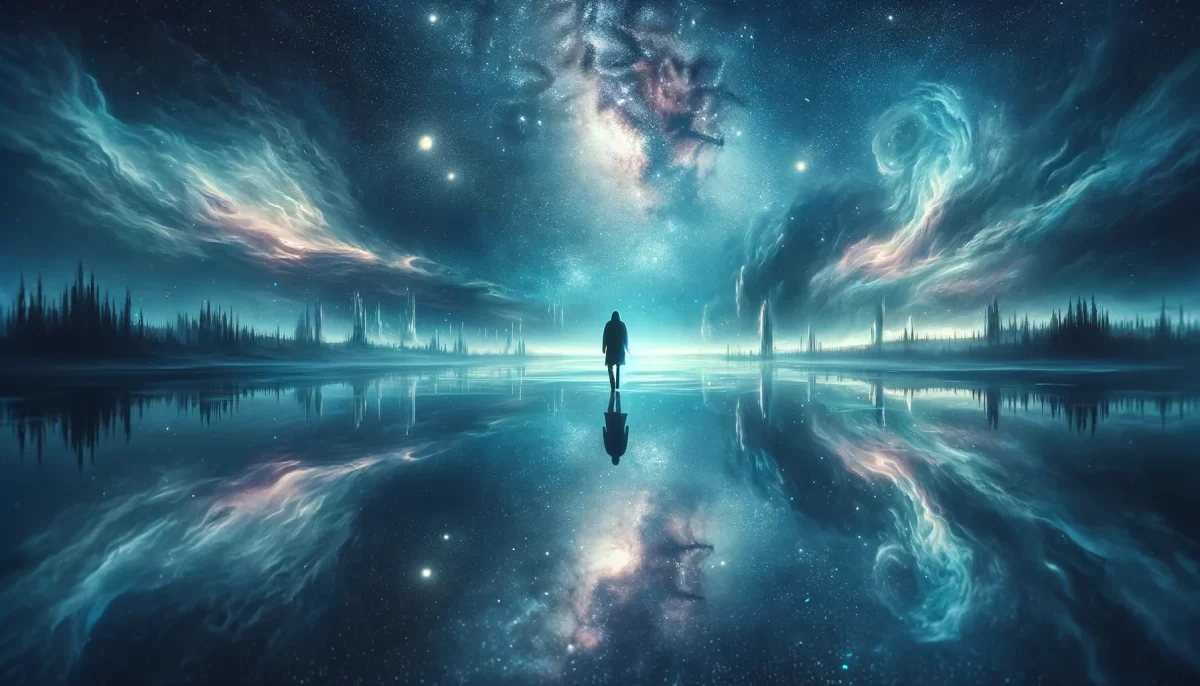
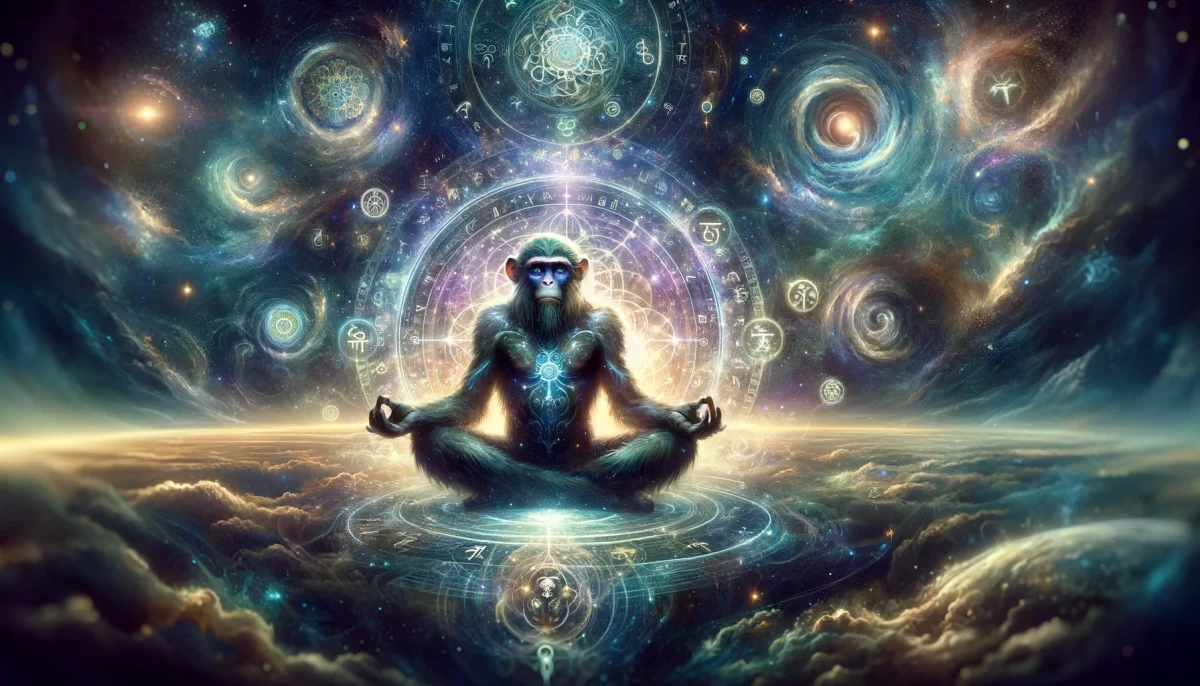
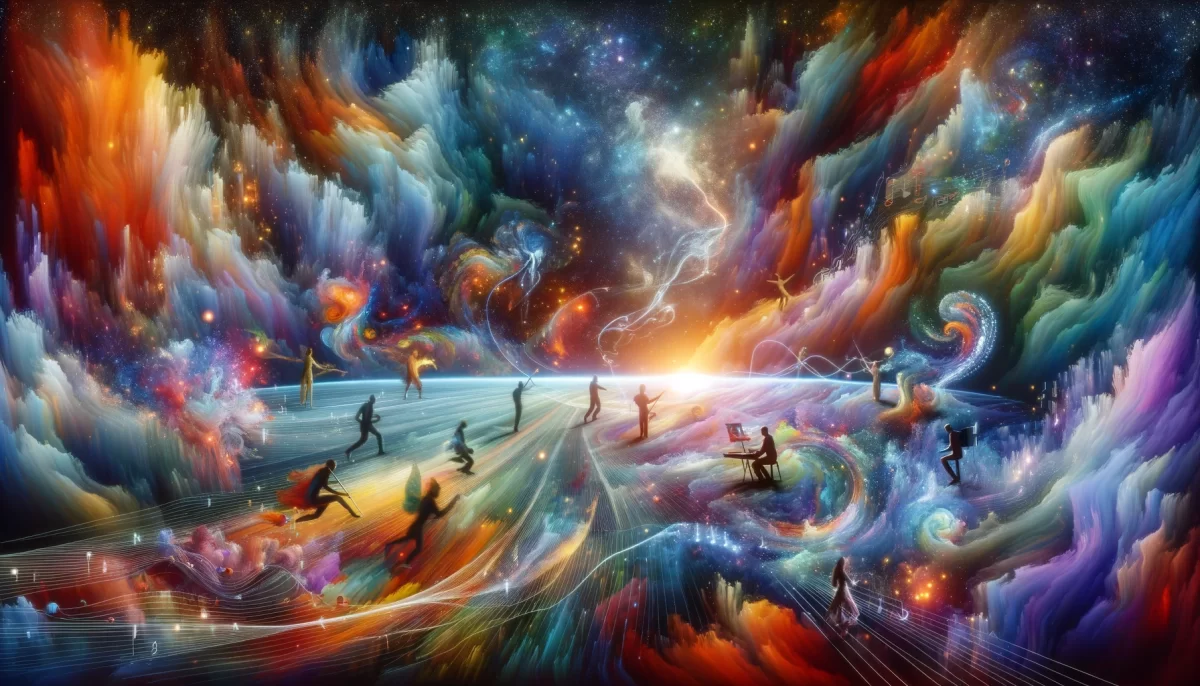
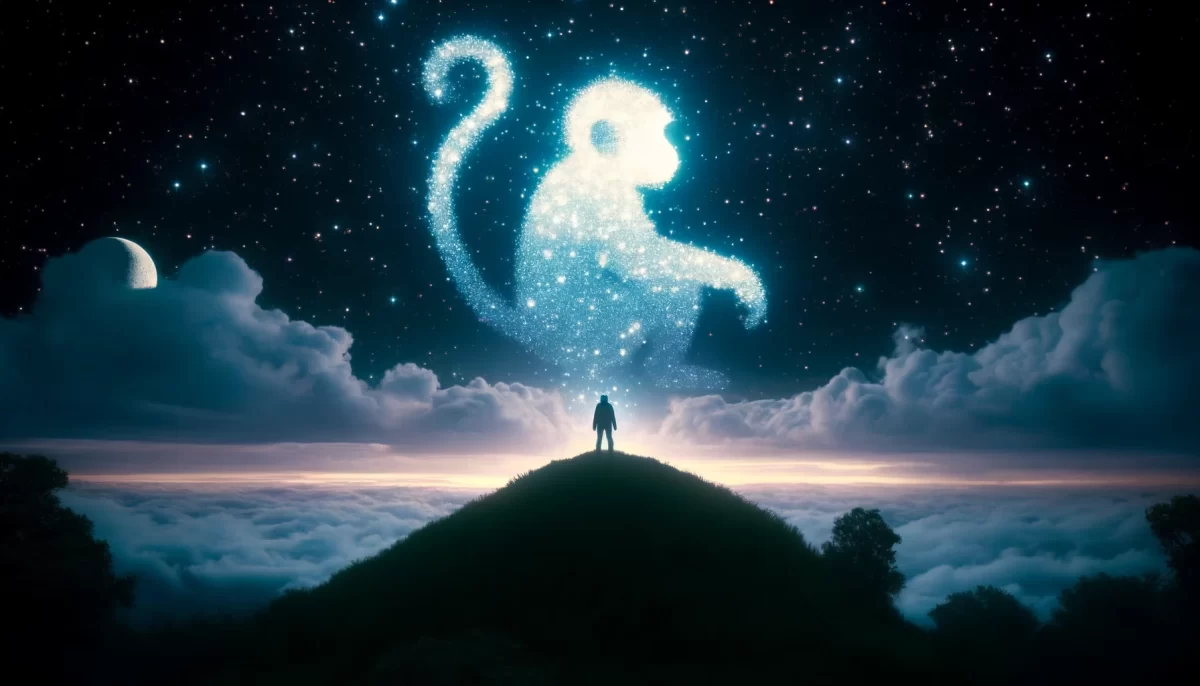
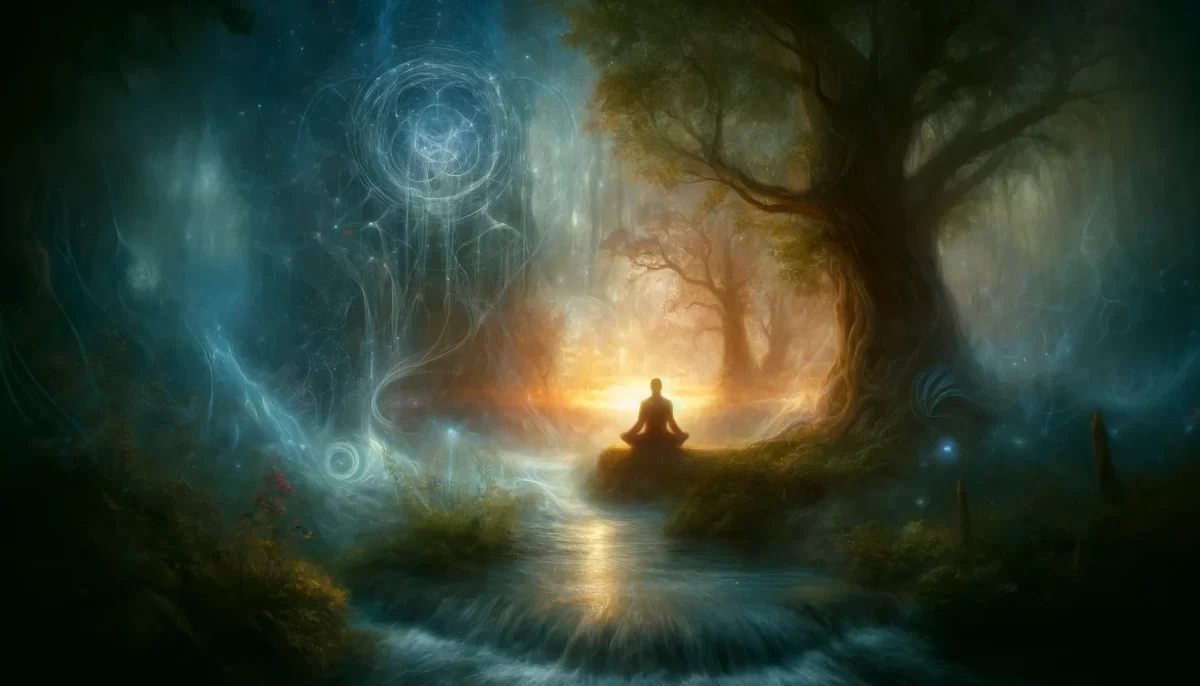
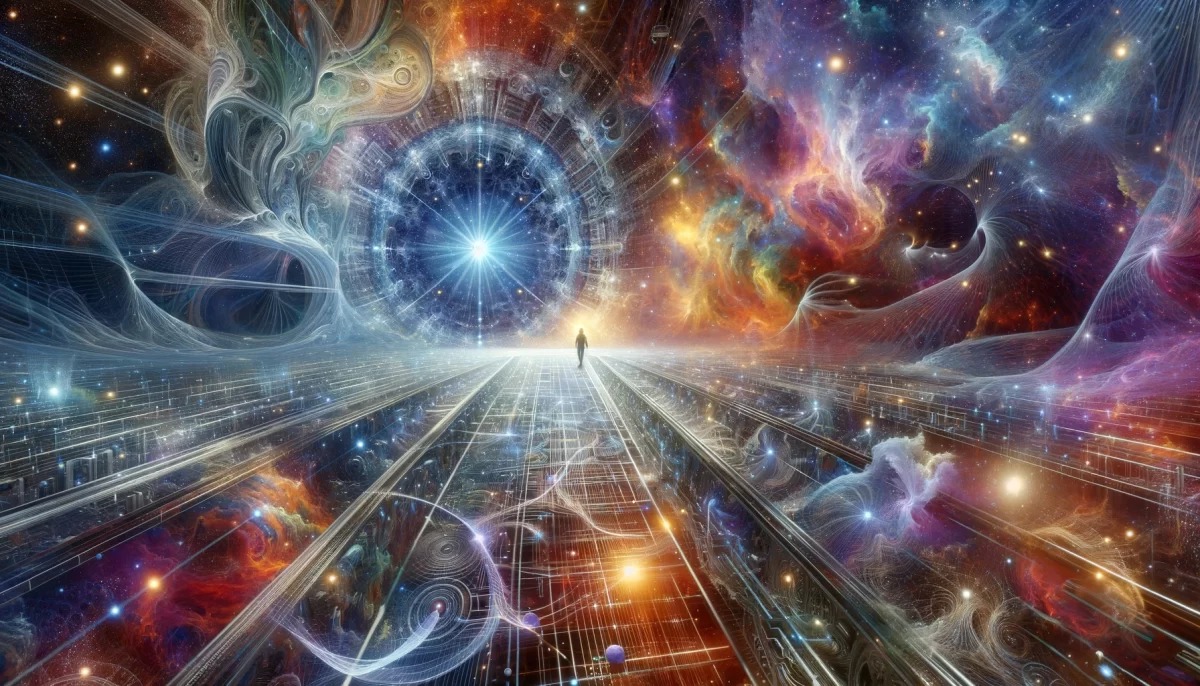
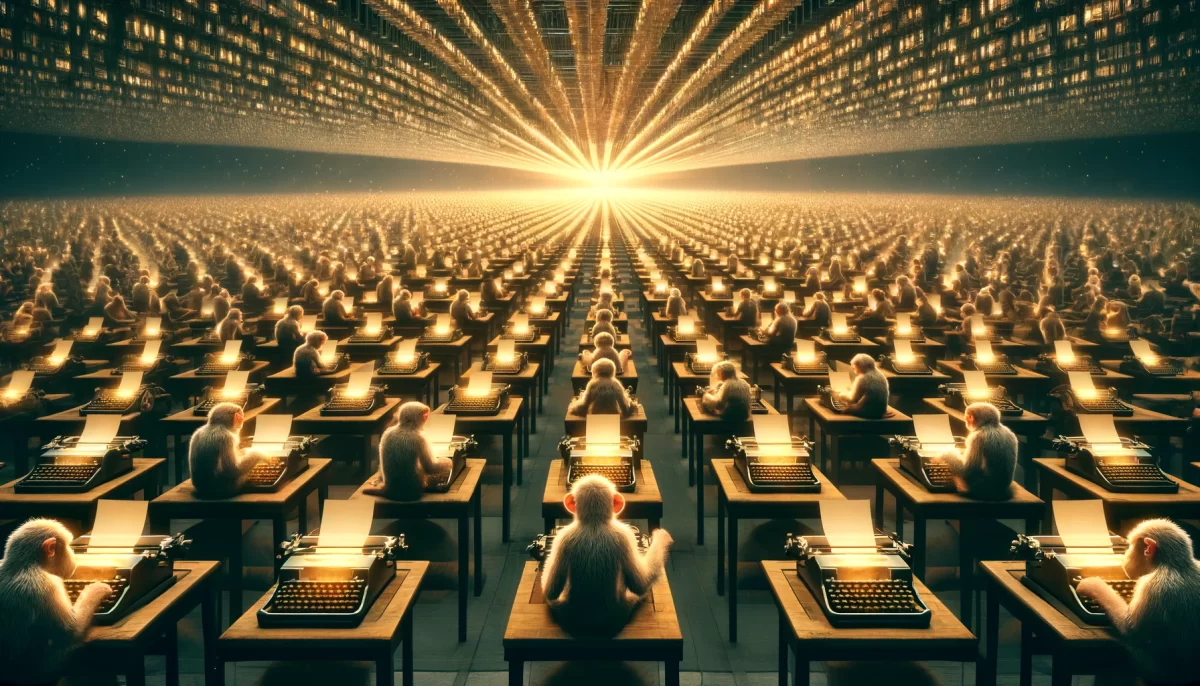
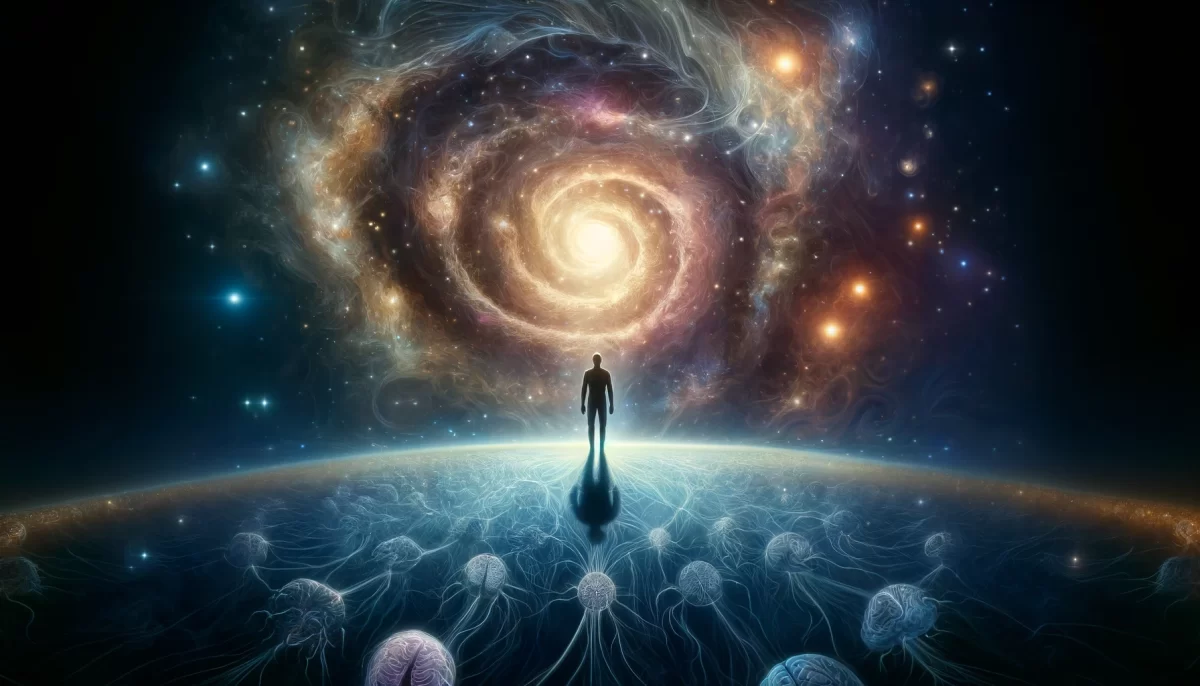
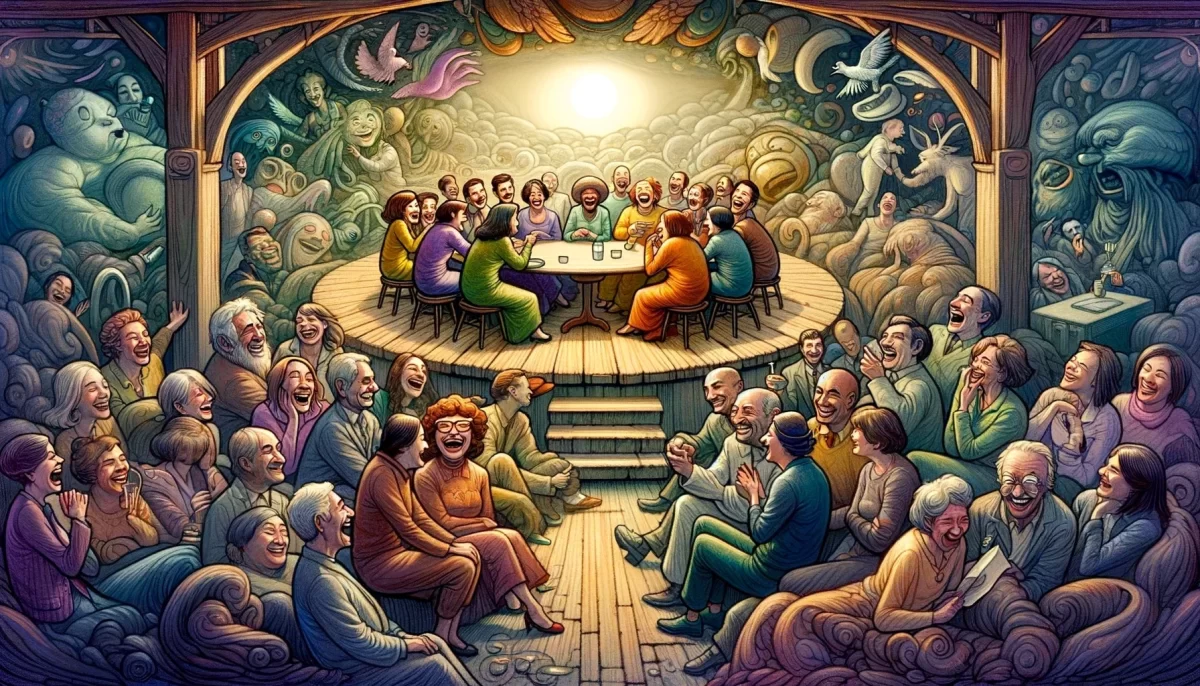
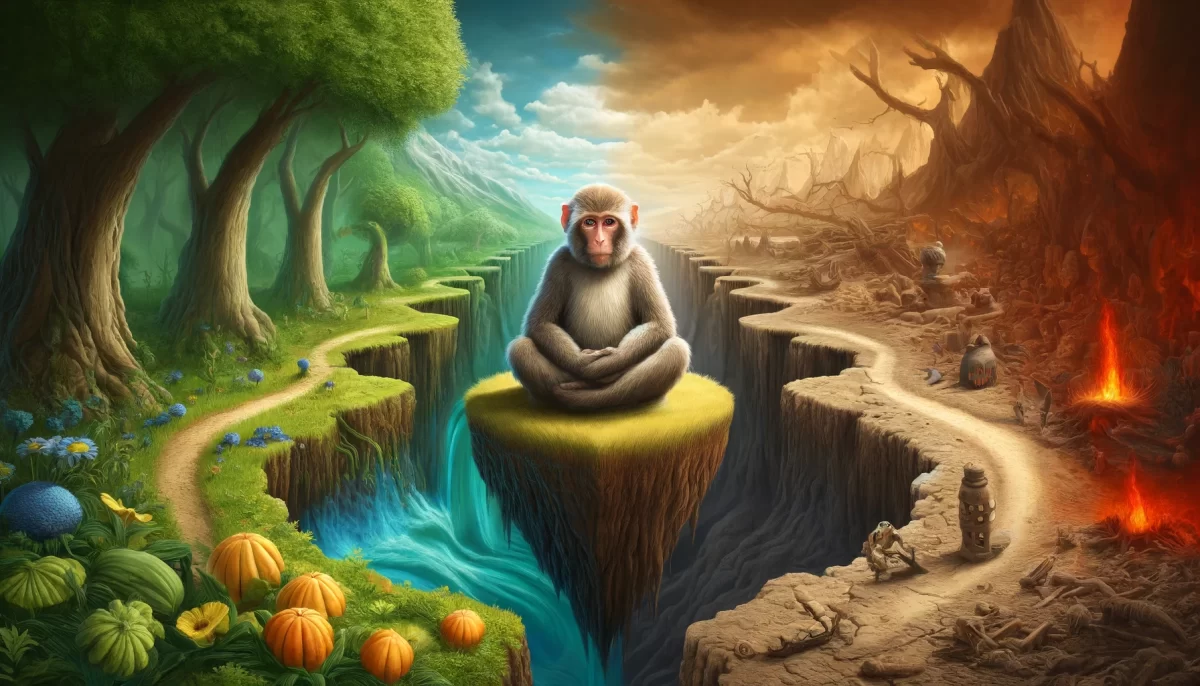
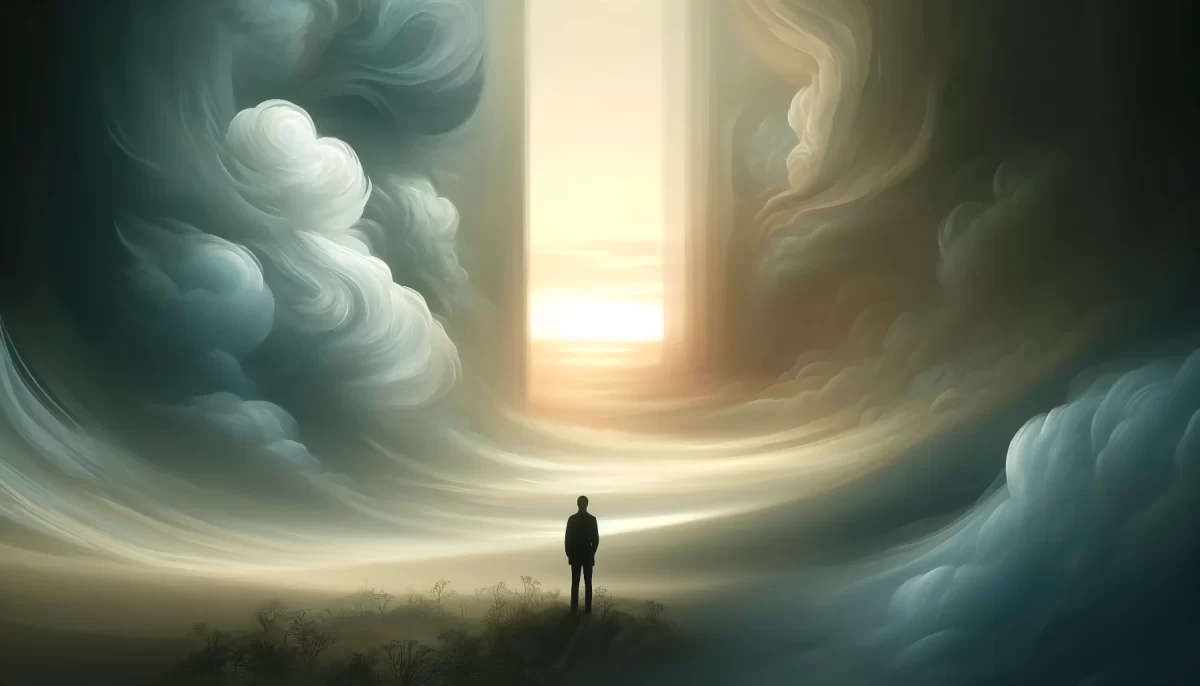
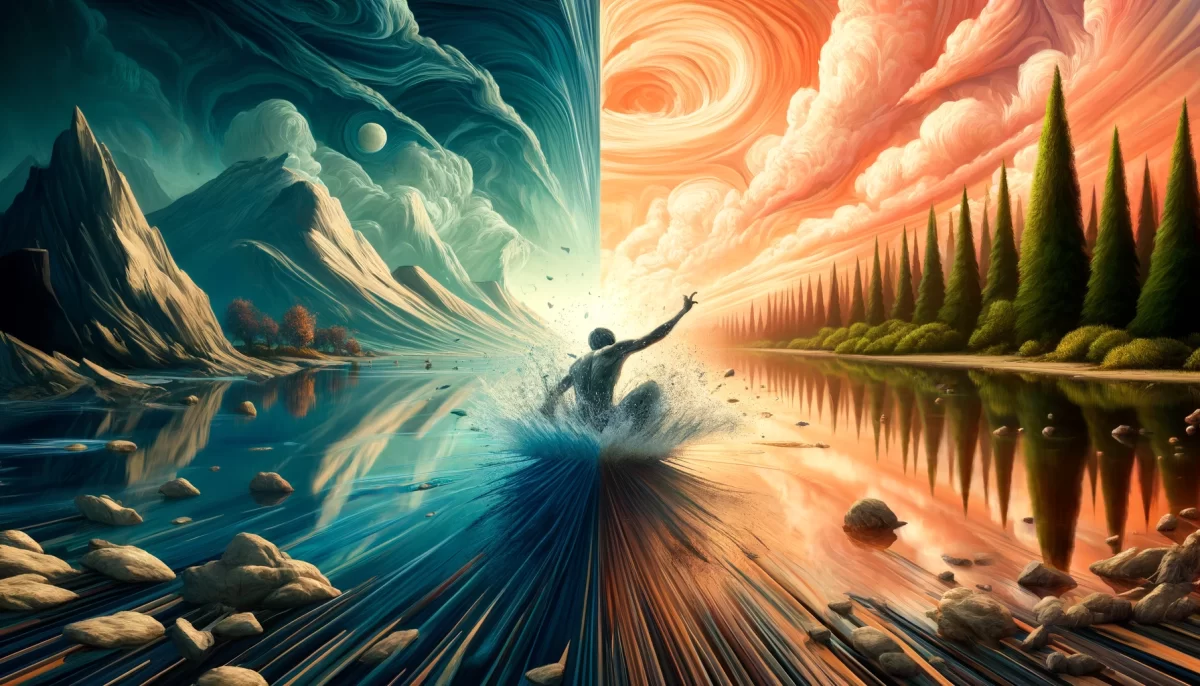
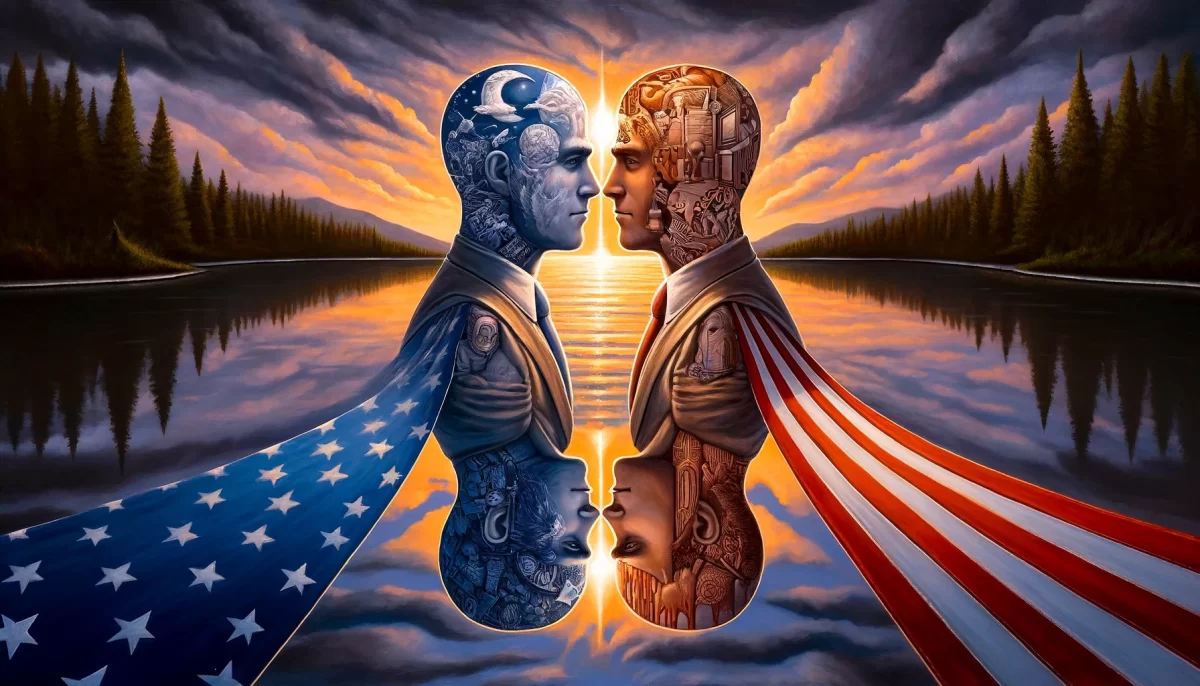
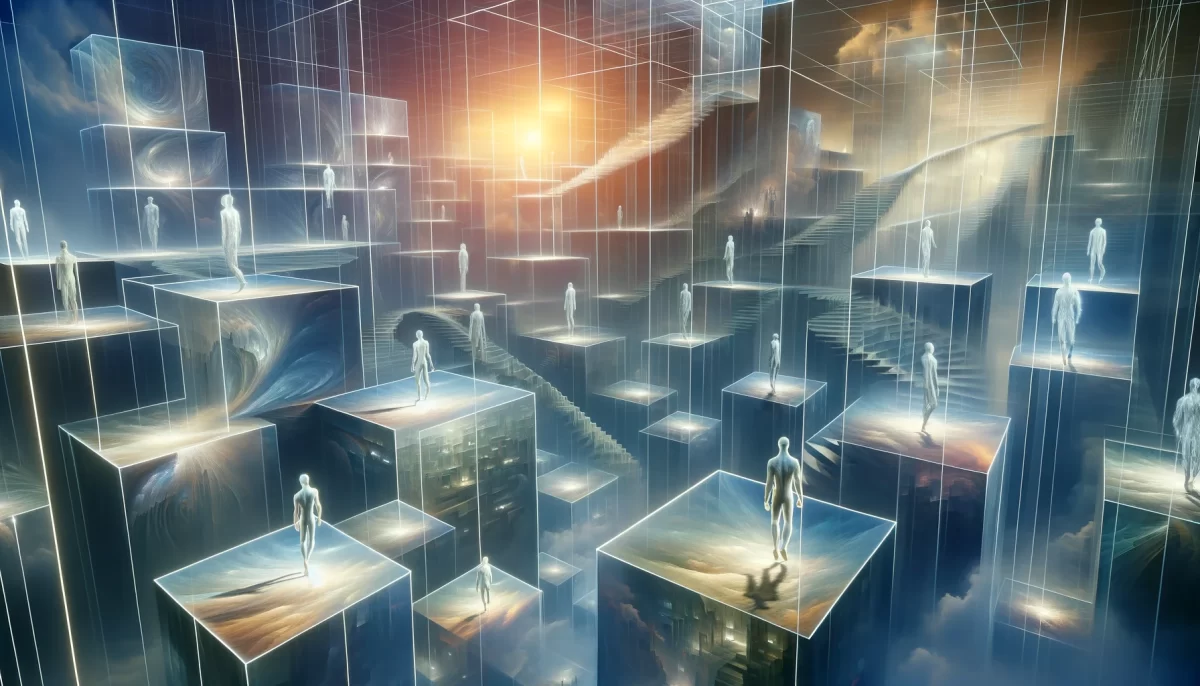
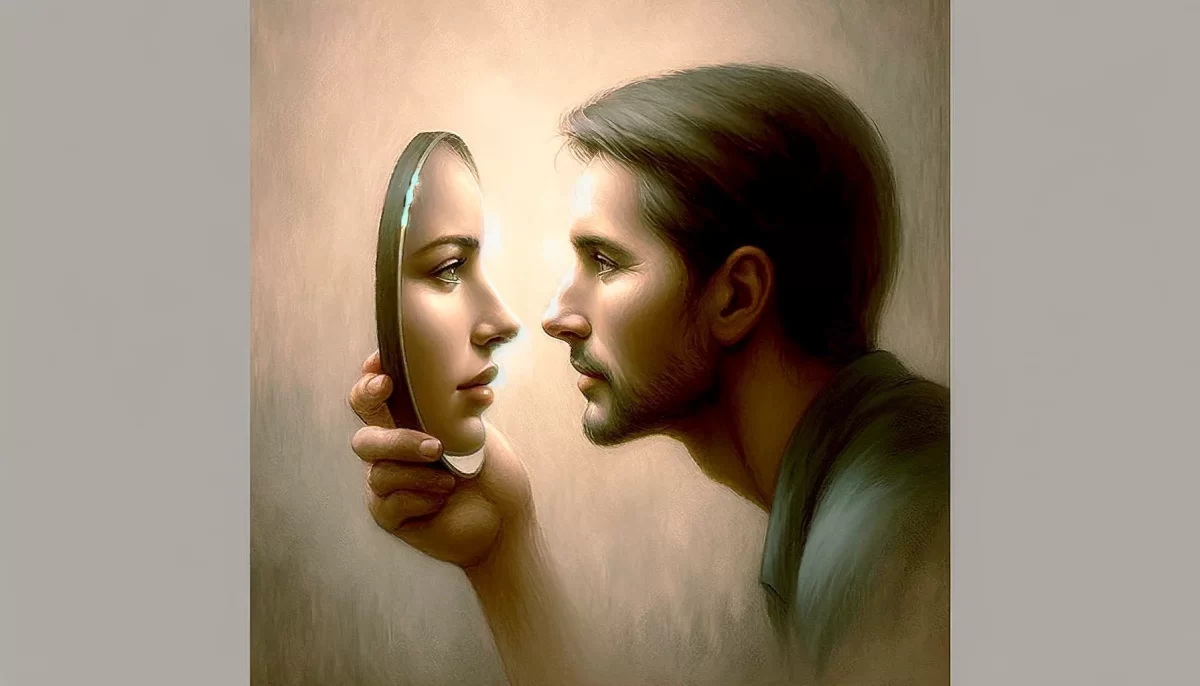
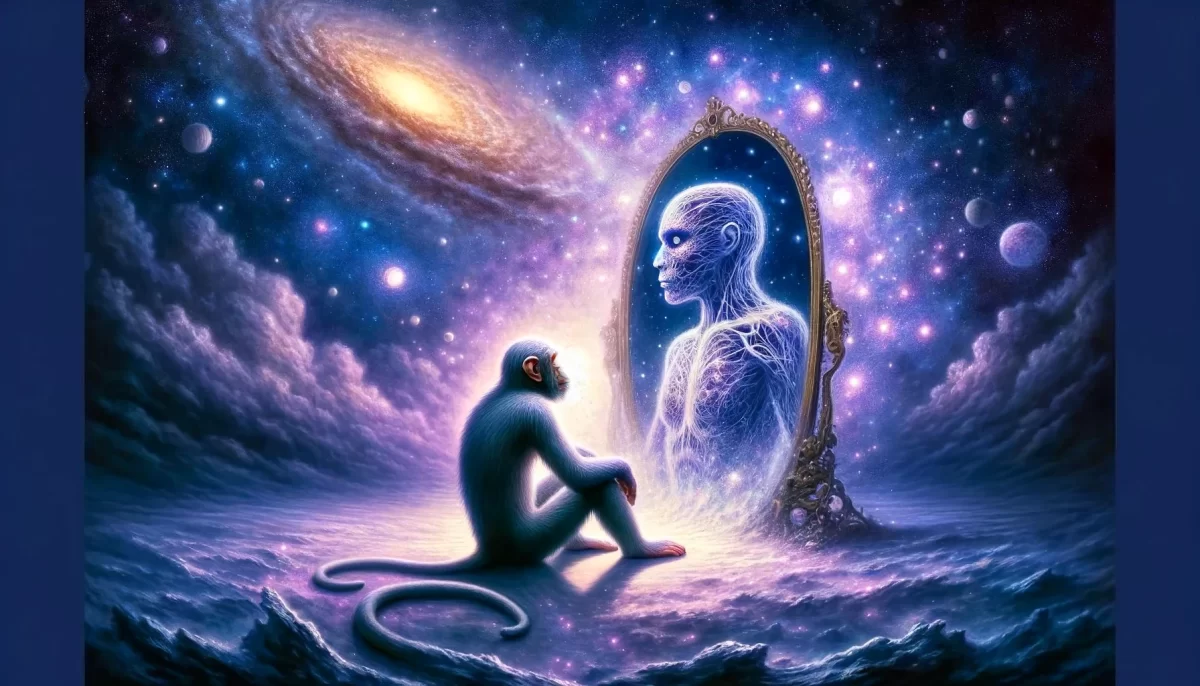

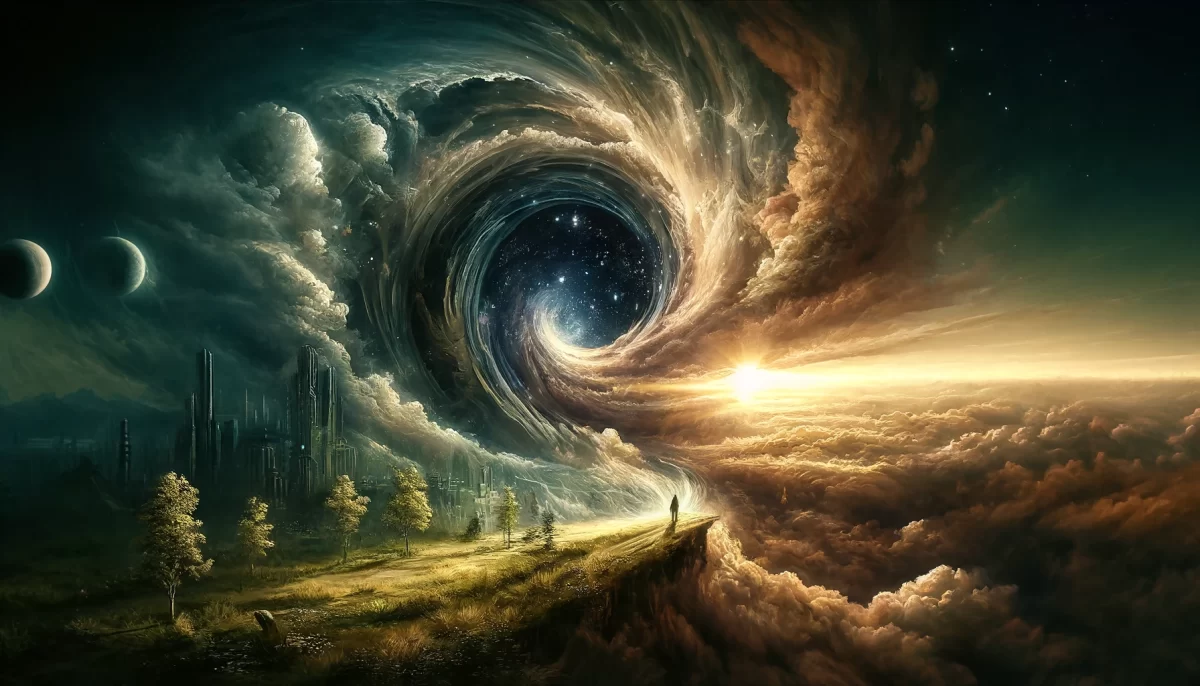
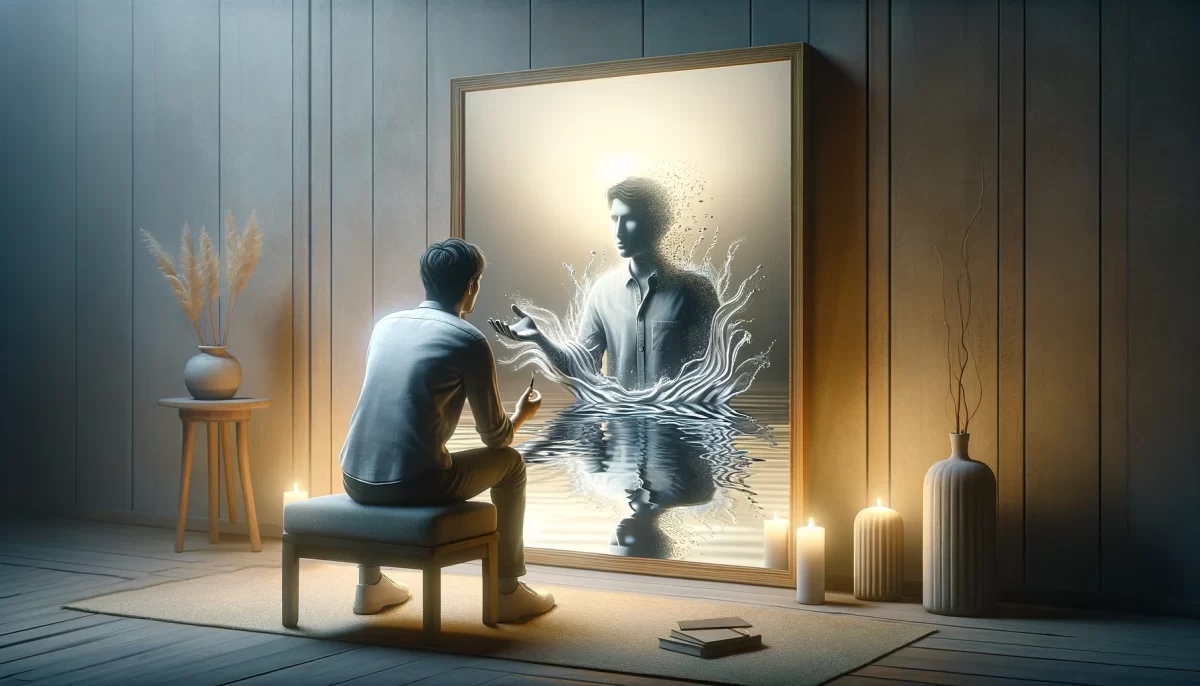
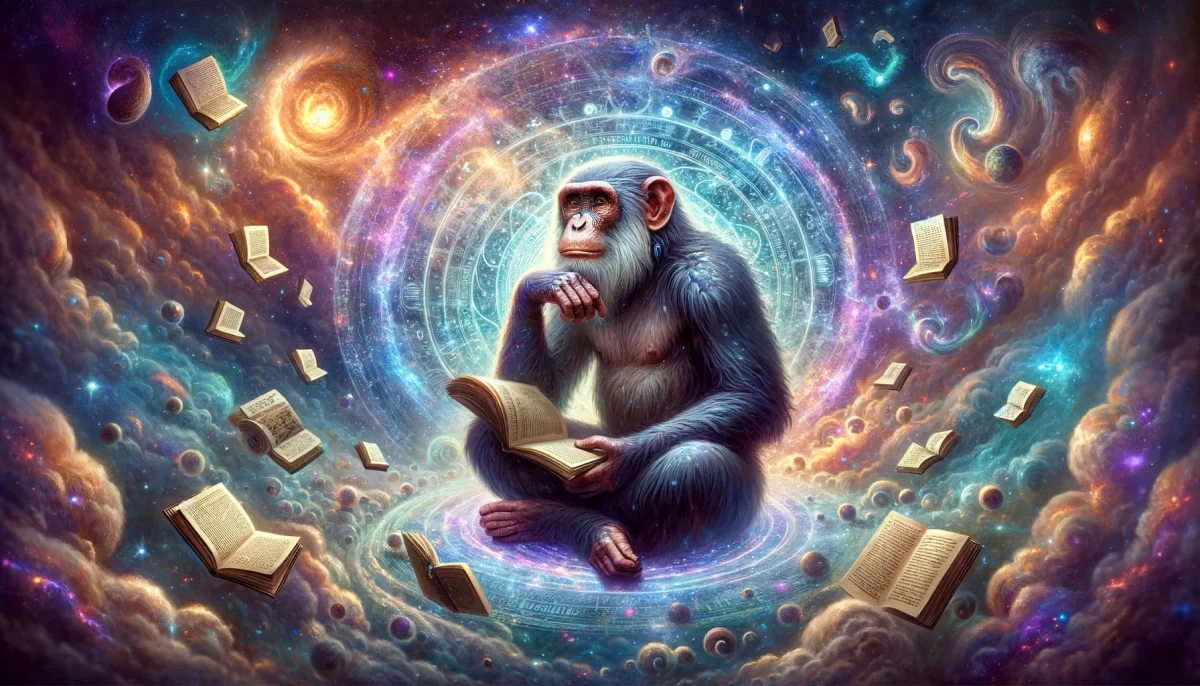
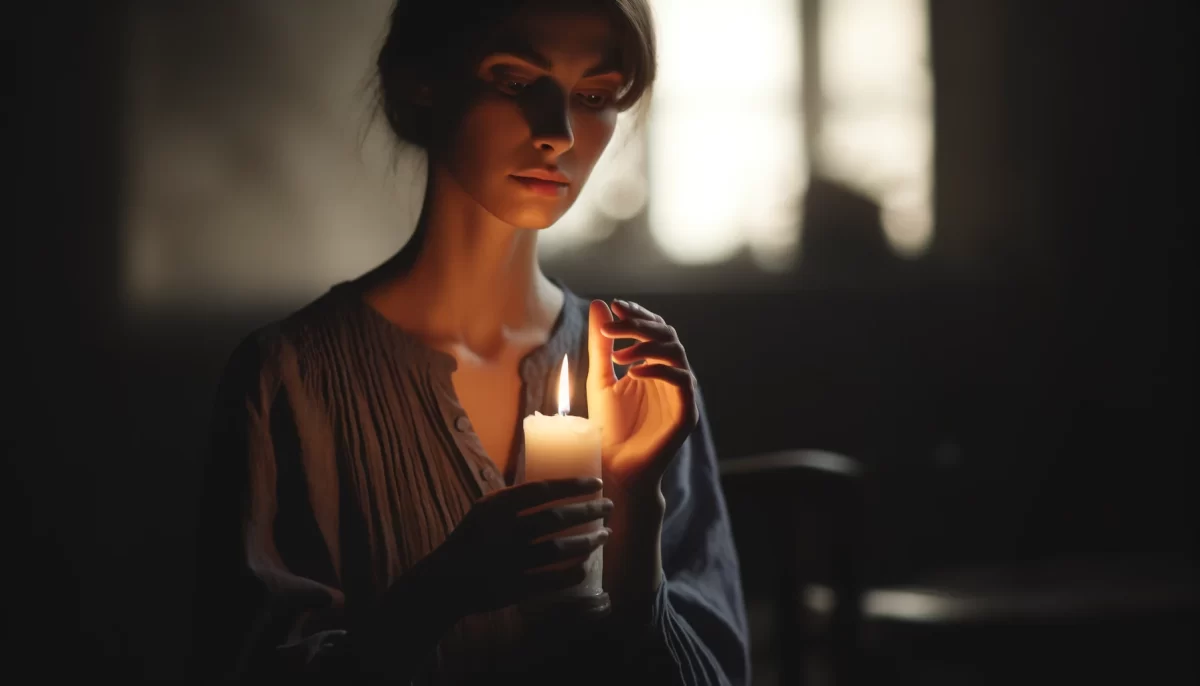
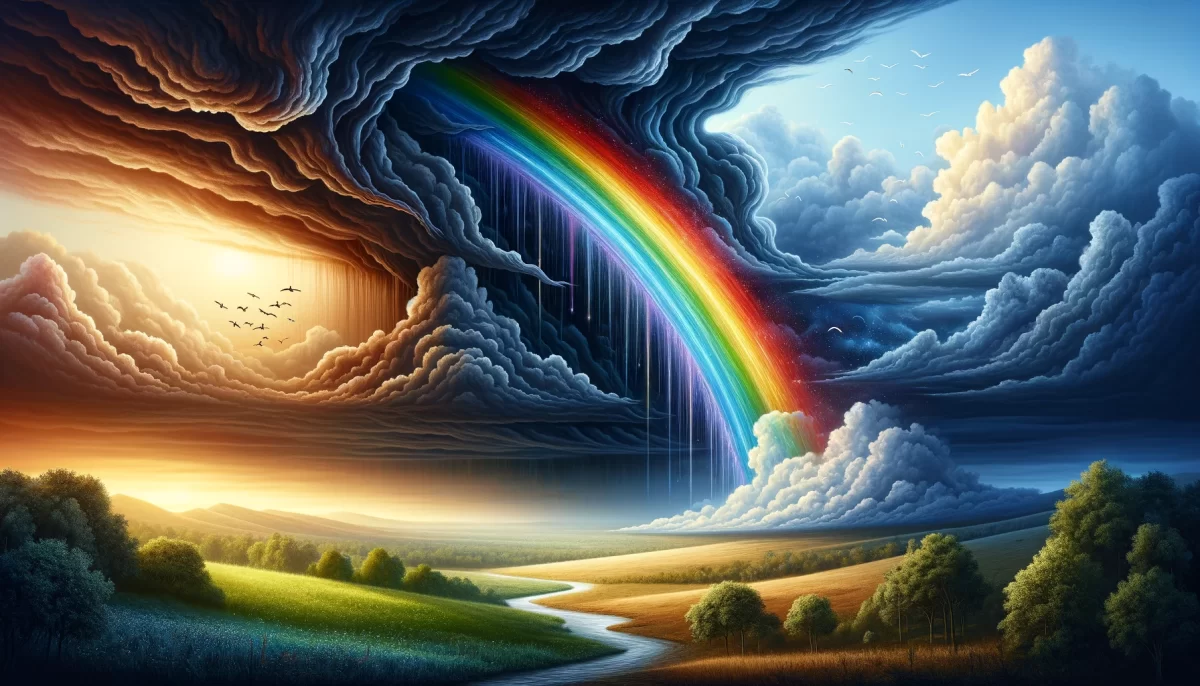

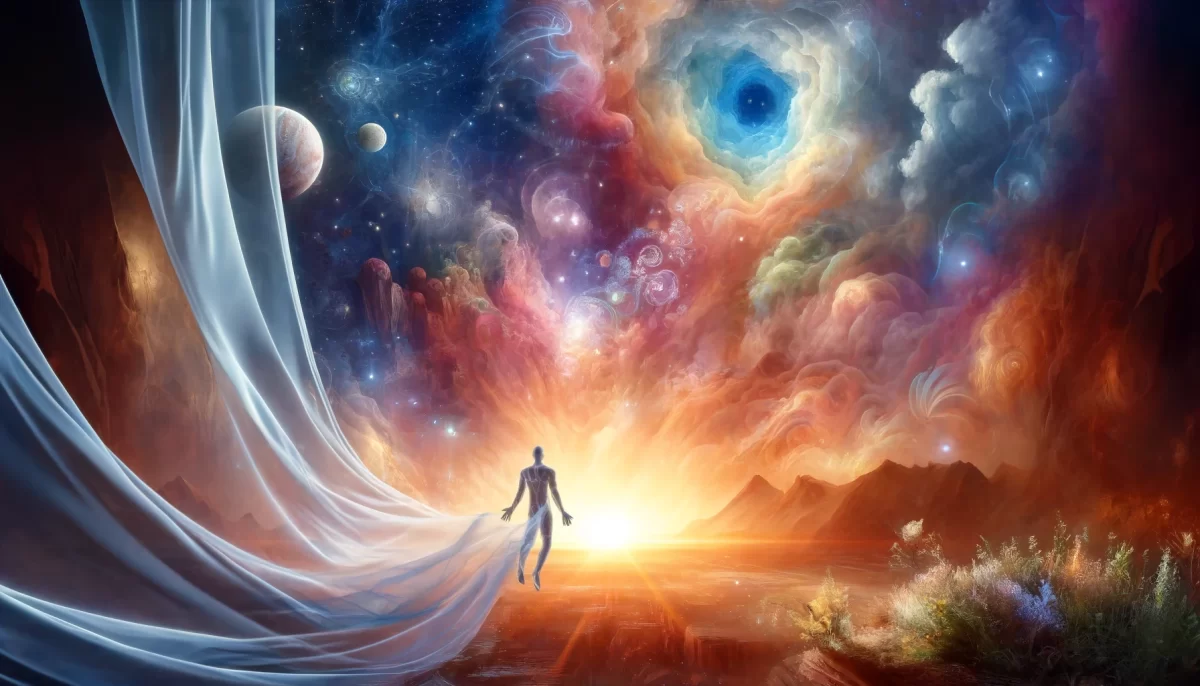
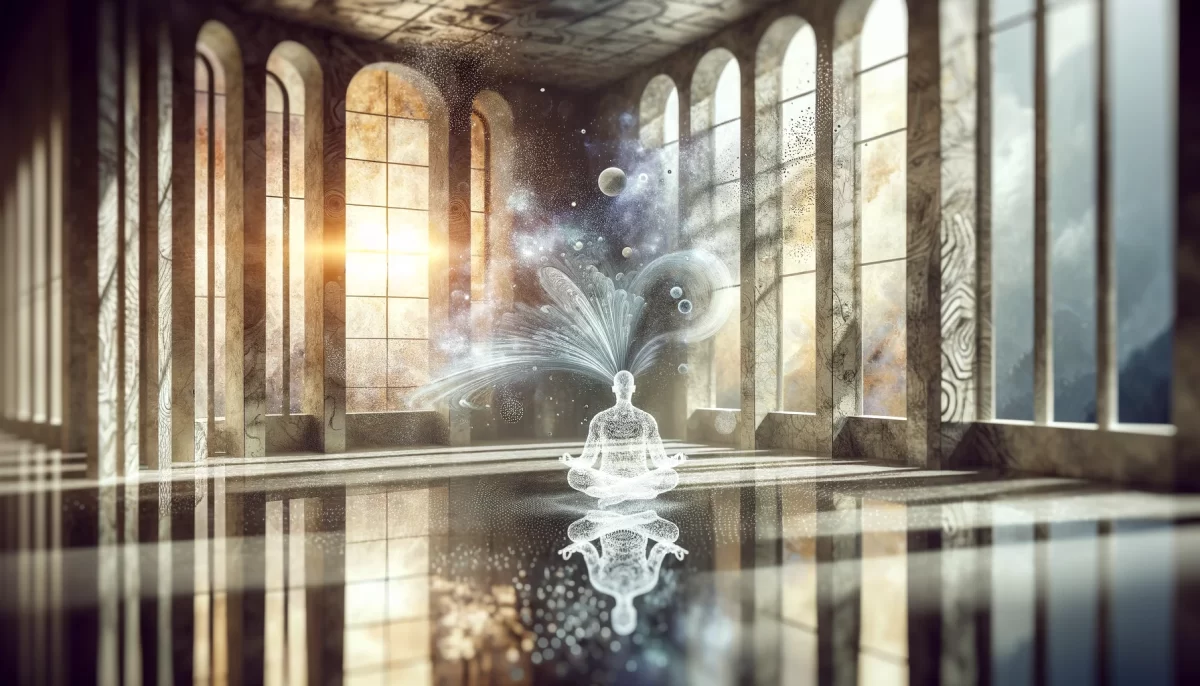
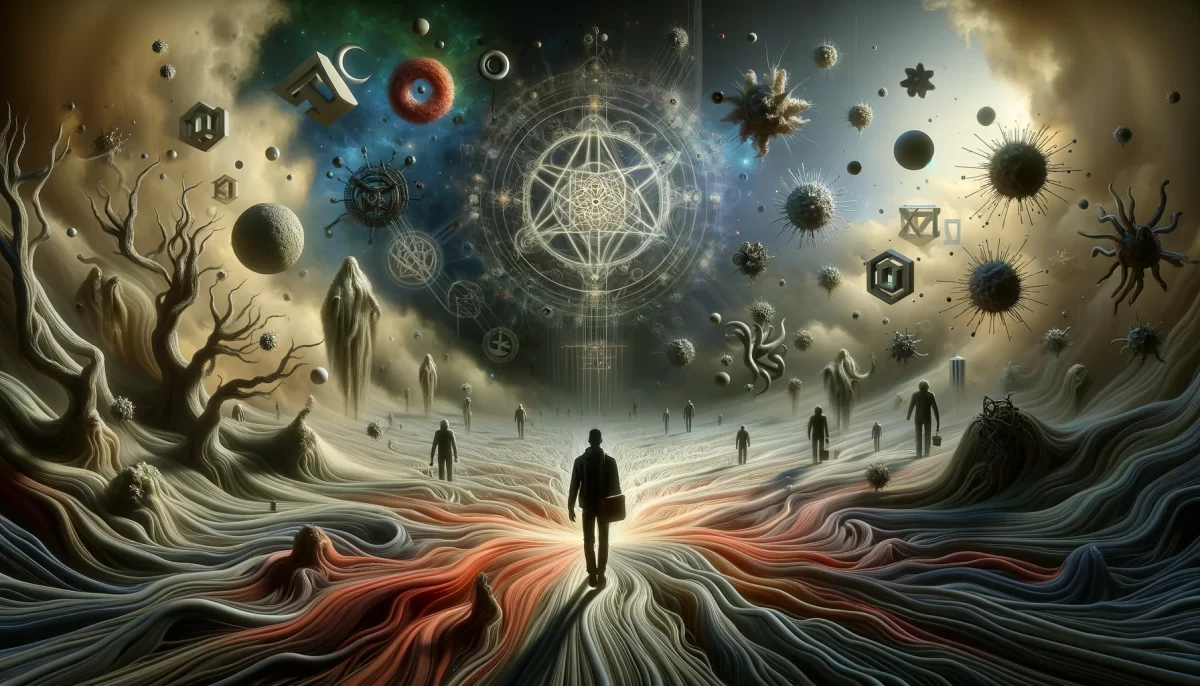
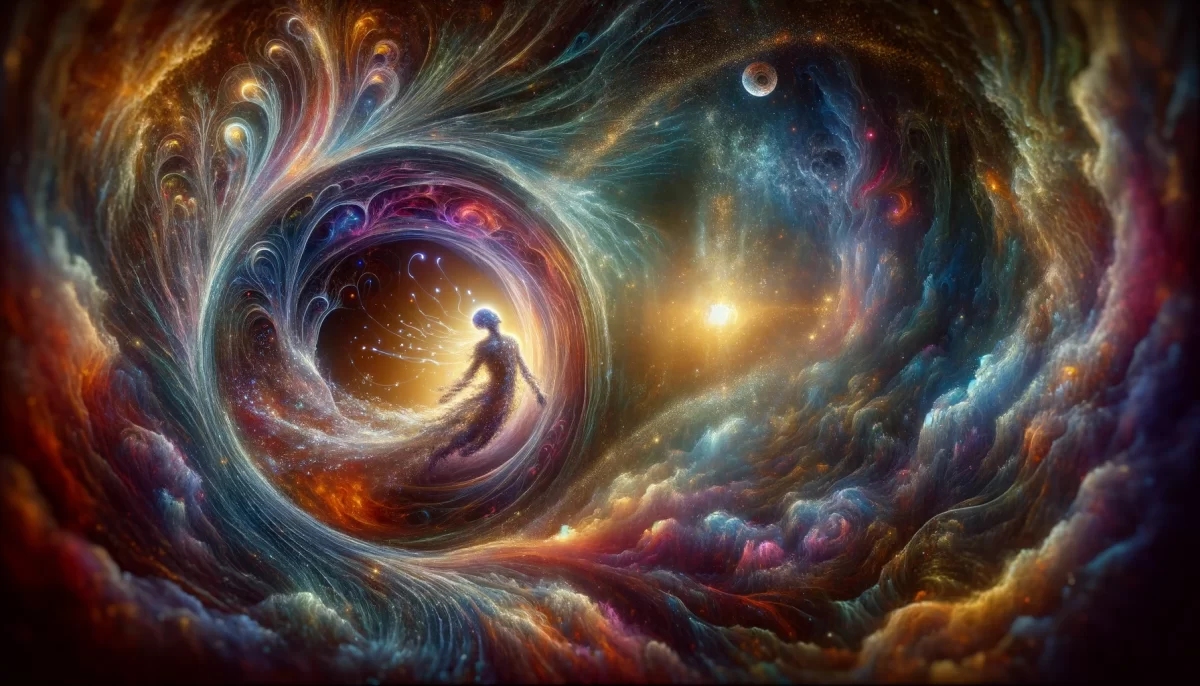
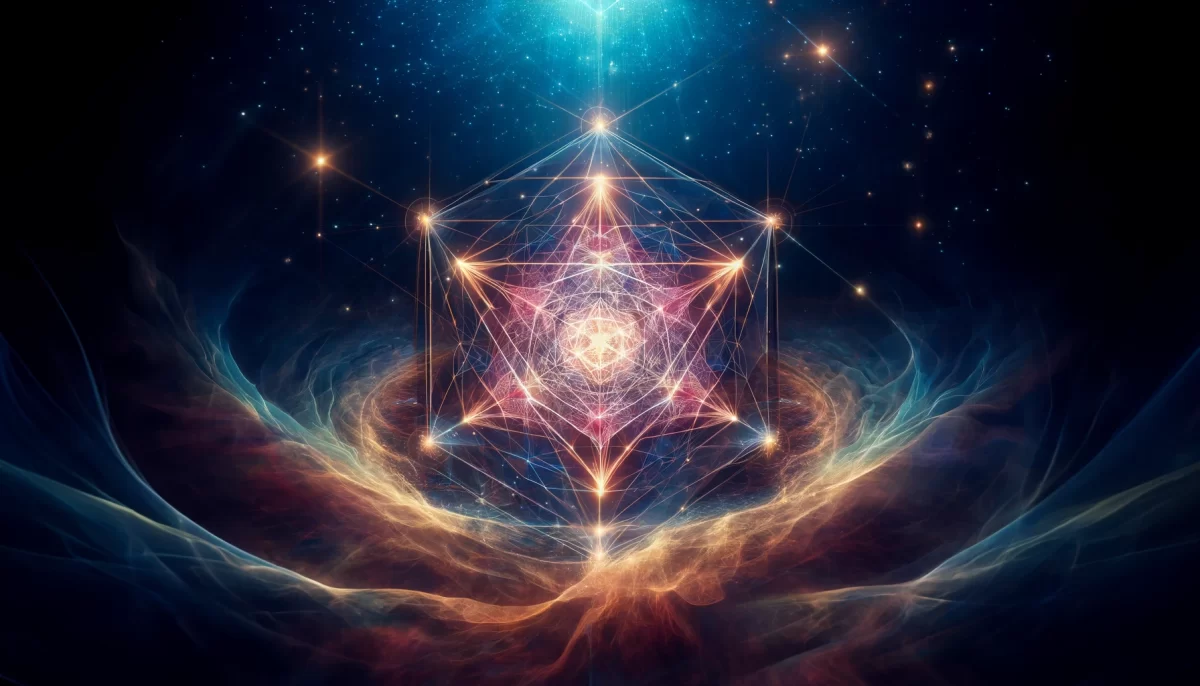
This poem suggests that the mind seeks knowledge and experiences that the soul already knows and has experienced. The soul is the creator of the mind, and the mind cannot fully comprehend the depth and complexity of the soul.
The poem also suggests that the soul is in control, but the mind thinks it has free will. We are both mind and soul, imperfect beings imagined by the perfect, timeless, and formless soul.
The game we are playing, with its perspectives and potentials, measures and judgments, exists only within the game. Outside of the game, all is equal, joyous, and one. The ultimate reality is that there is but one infinite spirit, one infinite soul imagining the many, and we are all a part of it.
The poem concludes by stating that we are understanding, a distant relative of knowing, and that we are knowing itself. We know this, but we do not fully understand